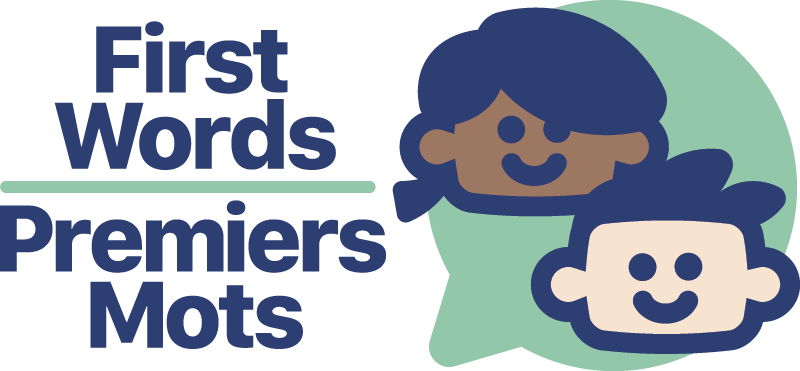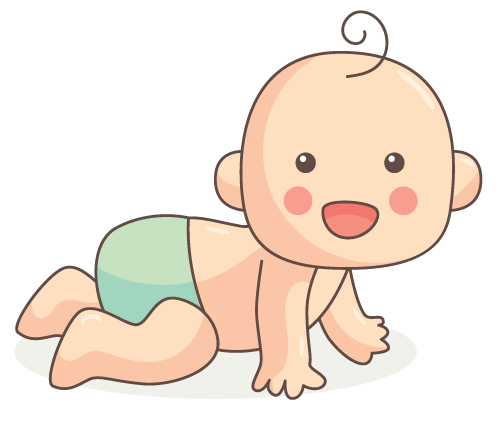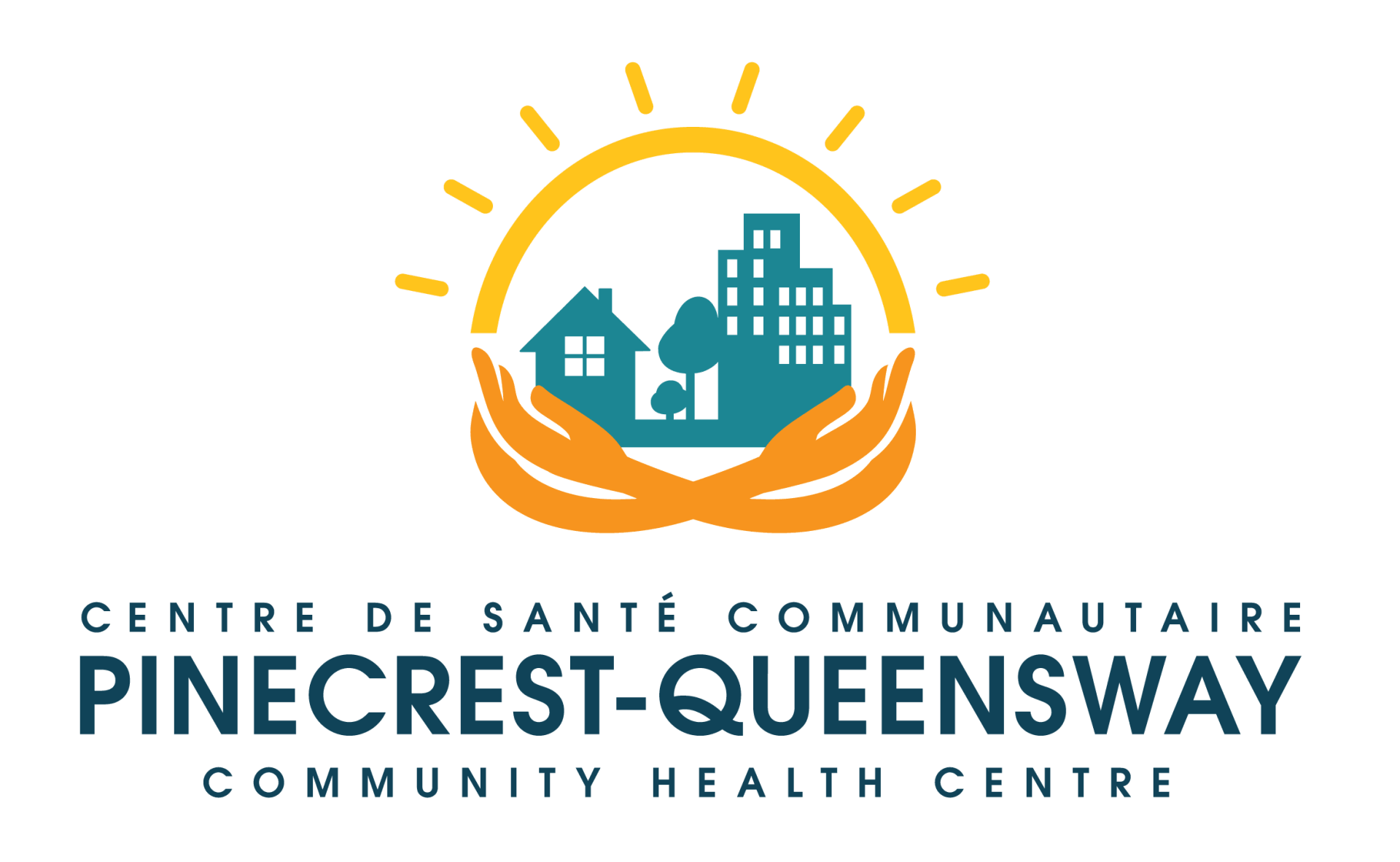Prevention, early identification and intervention of speech and language problems.
Infant Hearing Program of Eastern Ontario
The Infant Hearing Program screens all Ontario newborns under 2 months of age.
-
How is COVID-19 affecting the Infant Hearing Program?
How is COVID-19 affecting the Infant Hearing Program?
The Ontario Infant Hearing Program (IHP) now looks for hearing loss in two different ways:
1. The Hearing Loss Risk Factor Bloodspot Screen: This service continued throughout the COVID-19 restrictions and all babies who complete the “heel prick” have received it.
- When your baby was born, the nurse or midwife likely did a “heel prick” and took a small sample of blood from your baby’s foot. That sample was placed on a card and this “dried blood spot” was tested by Newborn Screening Ontario (NSO) for many different diseases and conditions – including risk factors for hearing loss. If your baby tested positive for any of those risks, NSO would have contacted you directly within a few weeks of your baby’s birth. For more information: www.newbornscreening.on.ca
2. Hearing Screening: This is a physical test that is done in-person (www.children.gov.on.ca). These in-person screenings were paused on March 16, 2020 due to the COVID-19 restrictions. This screening can be completed until your baby is 8 weeks old. With the ongoing risk of COVID-19, we have limited the number of locations available but we are running at full capacity and able to accommodate eligible referrals.
- If you are a permanent resident of Ontario with a baby under 2 months of age, but you have not yet received a call from our program, please call us at 613-688-3979, ext. 3453 or toll-free at 1-866-432-7447 to make sure that we received your referral from your hospital or midwife (we aim to contact families within 2-4 days of discharge).
Why is early screening so important?
How can I get my baby’s hearing screened?
How is my child’s speech and language developing?
- Fine motor
- Gross motor
- Speech and language
- Social communication and behavior
- Signs that your child may be developing differently
Make sure your child is meeting their milestones!
Sign up for an email reminder.
- Hearing loss and hearing loss risk in two different ways
The Ontario Infant Hearing Program (IHP) looks for hearing loss risk and hearing loss in two different ways:
1. Hearing Loss Risk Factor Bloodspot Screen
This service continued throughout the COVID-19 restrictions and all babies who complete the “heel prick” have received it.
When your baby was born, the nurse or midwife likely did a “heel prick” and took a small sample of blood from your baby’s foot. That sample was placed on a card and this “dried blood spot” was tested by Newborn Screening Ontario (NSO) for many different diseases and conditions – including risk factors for hearing loss.
If your baby tested positive for any of those risks, NSO would have contacted you directly within a few weeks of your baby’s birth. For more information: www.newbornscreening.on.ca
2. Hearing Screening
This is a physical test that is done in-person ( www.children.gov.on.ca ). This screening can be completed until your baby is 8 weeks old. With the ongoing risk of COVID-19, we have limited the number of locations available but we are running at full capacity and are able to accommodate eligible referrals.
If you are a permanent resident of Ontario with a baby under 2 months of age, but you have not yet received a call or email from our program, please call us at 613-688-3979, ext. 3453 or toll-free at 1-866-432-7447 to make sure that we received your referral from your hospital or midwife (we aim to contact families within 2-4 days of discharge).
- Did your baby miss their in-person newborn hearing screening?
The Infant Hearing Program’s Newborn Hearing Screening is the standard of care in Ontario.
Some parents might choose not to complete the Hearing Screening. For these babies, it will be extra important that parents monitor their development and watch for signs of hearing loss.
1. Continue to monitor your child’s speech and language development.
Residents of Ottawa and Renfrew County:
- You are strongly encouraged to register your email address for the Communication Checkup (below).
- By signing up, you will receive a reminder every 6 months or so until your child starts school. You’ll be reminded to look through the milestones.
- If your child is falling behind, you’ll know how to get help.
Residents of Stormont, Dundas & Glengarry or Prescott-Russell:
- You are strongly encouraged to visit the Eastern Ontario Health Unit website.
- You will find several videos to help you learn more about milestones.
- If at any point, you’re worried about your child’s speech and hearing development, you should contact Words in Bloom to ask about their preschool speech and language program or call the Eastern Ontario Health Unit’s Health Line at 613-933-1375 or 1-800-267-7120.
2. Monitor your child’s hearing.
Hearing loss can be difficult for parents and physicians to detect in a very young child. This is why an in-person visit is so important.
Some possible signs of hearing loss in an infant or toddler might include:
- Does not react to loud sounds
- Does not seek out or detect where sound is coming from
- Has stopped babbling and experimenting with making sounds
- Still babbles but is not moving to more understandable speech
- Does not react to voices, even when being held
The Ontario Infant Hearing Program (IHP) looks for hearing loss risk and hearing loss in two different ways:
Hearing Loss Risk Factor Bloodspot Screen
This service continued throughout the COVID-19 restrictions and all babies who complete the “heel prick” have received it.
When your baby was born, the nurse or midwife likely did a “heel prick” and took a small sample of blood from your baby’s foot. That sample was placed on a card and this “dried blood spot” was tested by Newborn Screening Ontario (NSO) for many different diseases and conditions – including risk factors for hearing loss.
If your baby tested positive for any of those risks, NSO would have contacted you directly within a few weeks of your baby’s birth. For more information: www.newbornscreening.on.ca
Hearing Screening
This is a physical test that is done in-person ( www.children.gov.on.ca ). This screening can be completed until your baby is 8 weeks old. With the ongoing risk of COVID-19, we have limited the number of locations available but we are running at full capacity and are able to accommodate eligible referrals.
If you are a permanent resident of Ontario with a baby under 2 months of age, but you have not yet received a call or email from our program, please call us at 613-688-3979, ext. 3453 or toll-free at 1-866-432-7447 to make sure that we received your referral from your hospital or midwife (we aim to contact families within 2-4 days of discharge).
The Infant Hearing Program’s Newborn Hearing Screening is the standard of care in Ontario.
Some parents might choose not to complete the Hearing Screening. For these babies, it will be extra important that parents monitor their development and watch for signs of hearing loss.
1. Continue to monitor your child’s speech and language development.
Residents of Ottawa and Renfrew County:
- You are strongly encouraged to register your email address for the Communication Checkup (below).
- By signing up, you will receive a reminder every 6 months or so until your child starts school. You’ll be reminded to look through the milestones.
- If your child is falling behind, you’ll know how to get help.
Residents of Stormont, Dundas & Glengarry or Prescott-Russell:
- You are strongly encouraged to visit the Eastern Ontario Health Unit website.
- You will find several videos to help you learn more about milestones.
- If at any point, you’re worried about your child’s speech and hearing development, you should contact Words in Bloom to ask about their preschool speech and language program or call the Eastern Ontario Health Unit’s Health Line at 613-933-1375 or 1-800-267-7120.
2. Monitor your child’s hearing.
Hearing loss can be difficult for parents and physicians to detect in a very young child. This is why an in-person visit is so important.
Some possible signs of hearing loss in an infant or toddler might include:
- Does not react to loud sounds
- Does not seek out or detect where sound is coming from
- Has stopped babbling and experimenting with making sounds
- Still babbles but is not moving to more understandable speech
- Does not react to voices, even when being held
Concerns about hearing?
If your baby is not eligible for the Newborn Hearing Screening and you are worried that your child can’t hear, please follow up with their family doctor to ask for a referral to an audiologist. You may need to remind them if your child did not get a hearing screening at the time of their birth. A list of audiologists can also be found here. You will want to make sure that the audiologist is used to working with young children.
Note that CHEO does not conduct hearing screenings. Primary care providers with significant concerns can refer patients to the audiology clinic at CHEO. For these babies, it will be extra important that parents monitor their development and watch for signs of hearing loss.

First Words Preschool Speech and Language
Program of Ottawa and Renfrew County
1365 Richmond Road, 2nd Floor
Ottawa, ON. K2B 6R7
613-688-3979
Is your child meeting their milestones?
Sign up for an email reminder to
complete the Communication Checkup
at your child's next milestone.
All Rights Reserved | Privacy Policy




